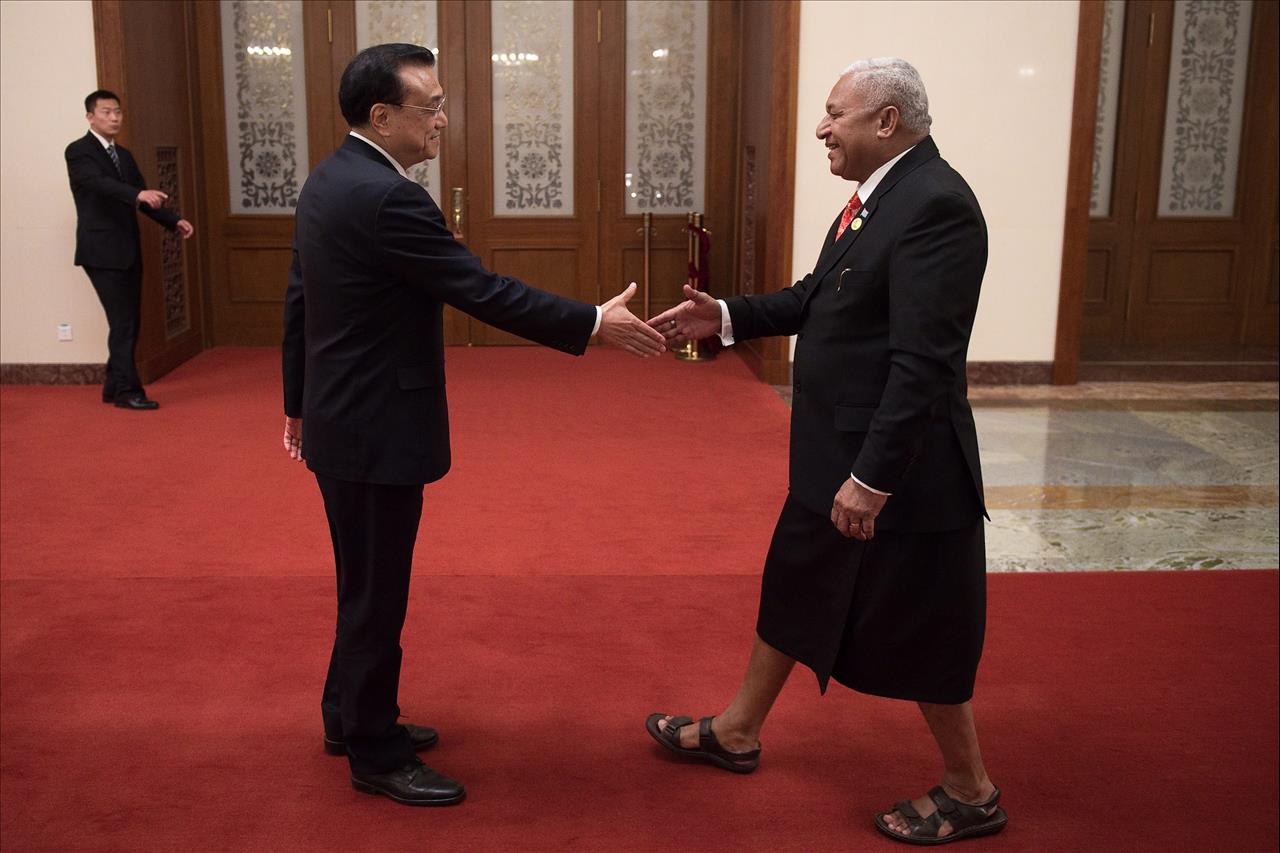(MENAFN- Asia Times) This is the concluding Part 2 of a series. The first part appeared yesterday .
As we have seen, the new Fijian prime minister, Sitiveni Rabuka set a new course for Fiji's domestic and foreign policies, including a seeming turn from China toward so-called traditional allies, such as Australia.
However, the new Fijian government has also taken an approach of balancing external power interests, which at times appears indecisive but at other times signals to some
observers
the loss of Chinese influence. In this piece, I argue that hedging on China merely reflects the tightrope-walking act that Pacific leaders must perform.
The most notable example of a cautious approach to China came in January 2023 when Rabuka decided not to
renew
a memorandum of understanding between the Fiji Police Force and China's Ministry of Public Security.
The agreement oversaw training of Fijian police officers in China and the secondment of Chinese officers for periods of three to six months in Fiji, as well as the transfer of equipment.
What gets lost in the framework of geostrategic competition is that such decisions, at least ostensibly, are intended to be made not primarily to favor one power over another but to serve the interests of the Fijian people.
In this light, when Rabuka in June of this year qualified the status of the MOU, saying it was“under review,” that made sense. The prime minister has also said that, if the conditions should become right, the MOU could be renewed.

Fiji's former prime minister Josaia Voreqe Bainimarama (R) shakes hands with Chinese Premier Li Keqiang (L) at the Great Hall of the People in Beijing on May 16, 2017. Photo: Asia Times Files / AFP / Pool / Nicolas Asfouri
A further example of the difficulty in managing converging external interests in Fiji also came in the immediate post-election period.
On January 23, a Fijian government press release
reaffirmed
Fiji's support for the“one China Principle ,” stating that there is only one China, the People's Republic of China (PRC), of which Taiwan is a part.
Yet, on March 24, an official communication from the Ministry of Foreign Affairs
reinstated
the Beijing-unfriendly name“Trade Mission of the Republic of China (Taiwan)” for Taipei's representative office in Suva.
And then, in June, the Fijian government
reversed
its decision so that the contentious term Republic of China could not be included. Taiwan
claimed
the reversal came under pressure from the PRC.
MENAFN28092023000159011032ID1107156691
Legal Disclaimer:
MENAFN provides the information “as is” without warranty of any kind. We do not accept any responsibility or liability for the accuracy, content, images, videos, licenses, completeness, legality, or reliability of the information contained in this article. If you have any complaints or copyright issues related to this article, kindly contact the provider above.